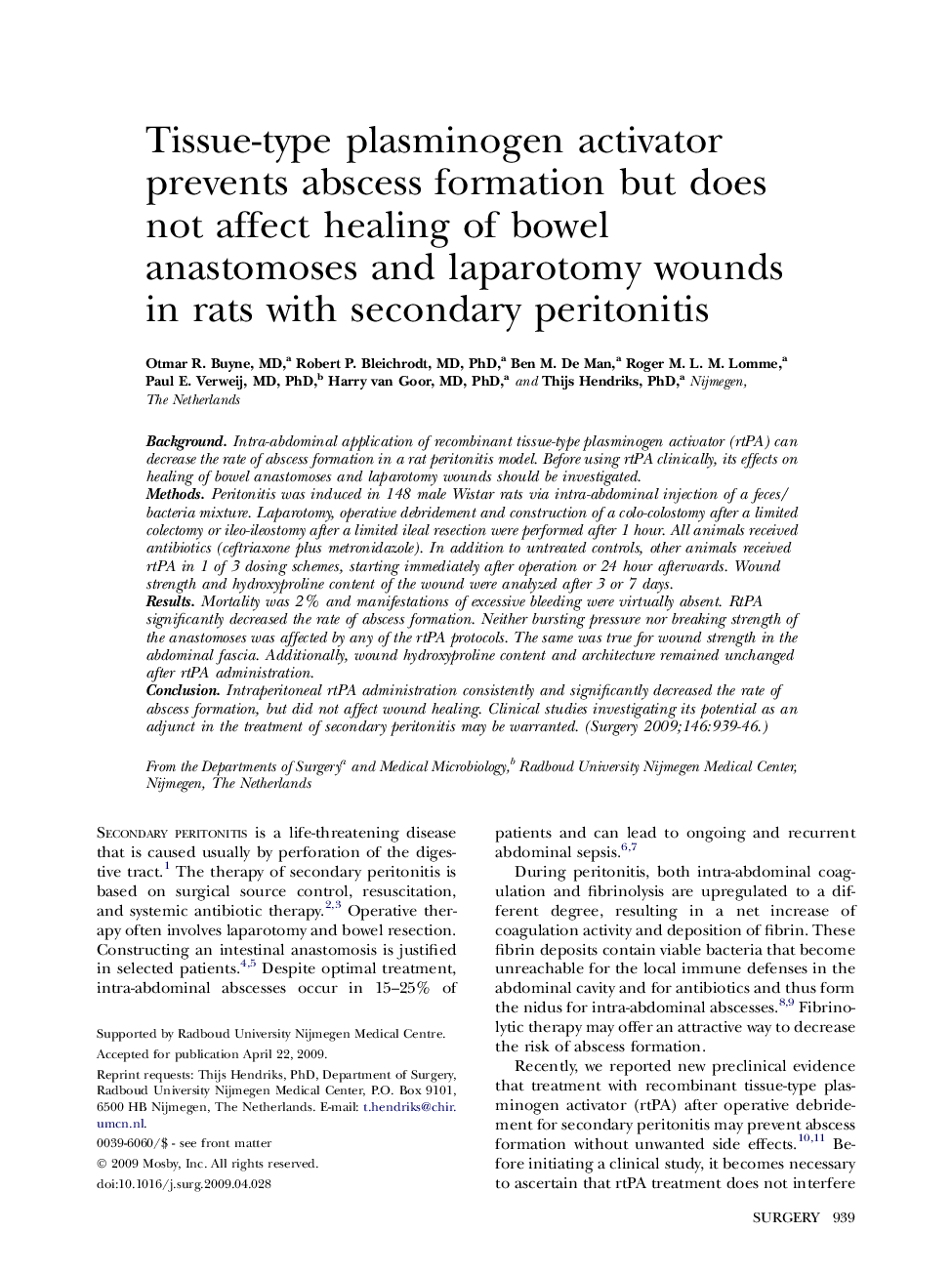| Article ID | Journal | Published Year | Pages | File Type |
|---|---|---|---|---|
| 4309427 | Surgery | 2009 | 8 Pages |
BackgroundIntra-abdominal application of recombinant tissue-type plasminogen activator (rtPA) can decrease the rate of abscess formation in a rat peritonitis model. Before using rtPA clinically, its effects on healing of bowel anastomoses and laparotomy wounds should be investigated.MethodsPeritonitis was induced in 148 male Wistar rats via intra-abdominal injection of a feces/bacteria mixture. Laparotomy, operative debridement and construction of a colo-colostomy after a limited colectomy or ileo-ileostomy after a limited ileal resection were performed after 1 hour. All animals received antibiotics (ceftriaxone plus metronidazole). In addition to untreated controls, other animals received rtPA in 1 of 3 dosing schemes, starting immediately after operation or 24 hour afterwards. Wound strength and hydroxyproline content of the wound were analyzed after 3 or 7 days.ResultsMortality was 2% and manifestations of excessive bleeding were virtually absent. RtPA significantly decreased the rate of abscess formation. Neither bursting pressure nor breaking strength of the anastomoses was affected by any of the rtPA protocols. The same was true for wound strength in the abdominal fascia. Additionally, wound hydroxyproline content and architecture remained unchanged after rtPA administration.ConclusionIntraperitoneal rtPA administration consistently and significantly decreased the rate of abscess formation, but did not affect wound healing. Clinical studies investigating its potential as an adjunct in the treatment of secondary peritonitis may be warranted.
